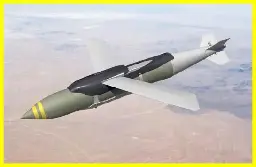Yeah but now he's above the law, so I say do it anyway and overturn the ruling his damn self.
You have to be happy for the little things in life like a car not smashing through your conservatory.
It is fair to remember, however, that his biggest bombshells were from the Iraq war, which was a decidedly Republican endeavor. But I do agree that he looked more and more like a Russian asset as time went on.
As a chubby middle aged sales guy who remembers when we used to wear suits, I miss them because a suit and tie is about the best thing you can wear as a chubby guy to look good.
This is just the feel good story I was looking for today.
But where will they get the poor uneducated population that they need to buoy support for their extreme right wing parties?
But think how many fewer cocks it is to deal with.
I'm pretty sure the similar exists in other places too. You could host it in AWS in China or Bahrain and save yourself a bunch of risk.
Why in the world would you do this in the US?
Get used to this being used as a weapon of hybrid warfare by enemies of the west
Whenever these people write something, the spelling mistakes are all but inevitable. I'm really impressed if they manage to spell a whole sentence.
Immediately made me think of this.
I guess my issues with stuff like the tardigrade, time bug, spore drive, etc. is that it's just taking something from earth and putting it in space and saying it's the "space version". It's so lazy and stupid. At least TOS usually had some interesting reasoning behind why these things were happening or they were different enough from anything on earth that at least they felt novel and innovative.
That's kind of exactly what I don't like about it and part of why I call it a "space marines" series. Gene's vision is of a future where different life forms come together and work under a unified code and for the greater good. It's not about one person rising to power and being the hero.
It feels like they are trying to graft the Star Wars theme onto Star Trek with hand wavey magical "forces" that don't have even the most tenuous link to science, and singular heroes that make anything that's worth happening happen. The original series at least tried to give a nod to the scientific consensus and then try to extrapolate it out.
I dislike Discovery, not true to Gene's vision.
It stopped being sci-fi and started being fantasy when they started with magical tardigrades and "time bugs". The rest plays like a space marines series.
Edit: also the spark and flame throwers on the bridge make it look like GWAR concert.
What exactly is negative mass?
Yeah but it sounds a lot better than "We've pursued a policy of understaffing to save costs".
In the New Cold War, Europe’s Approach to China Is Already Outdated, Researchers Say
The hope that Beijing would distance itself, however minimally, from Moscow has finally been extinguished. Europe needs to adjust its approach accordingly.
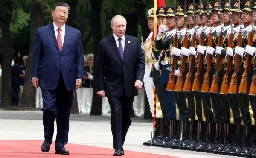
cross-posted from: https://feddit.de/post/12947956
> In the New Cold War, Europe’s Approach to China Is Already Outdated, Researchers Say > > Archived link > > The hope that Beijing would distance itself, however minimally, from Moscow has finally been extinguished. Europe needs to adjust its approach accordingly. > > Written by Maximilian Mayer, professor of International Relations and the Global Politics of Technology at the University of Bonn, Germany • Emilian Kavalski, NAWA Chair professor at the Jagiellonian University in Krakow. Poland. > > That Russian President Vladimir Putin is preparing for a long war not just in Ukraine, but against Western democracies more broadly, should hardly be news, even if many in Europe and North America refuse to acknowledge this fact. At least since the 2008 Russian intervention in the conflict in Georgia, Putin has condoned a series of both hot and hybrid warfare campaigns to weaken the democratic fabric of countries in Russia’s vicinity and further afield. It was recently revealed that on the eve of the full-scale invasion of Ukraine in February 2022, Russia launched a spacecraft to test nuclear anti-satellite weapons, further evidence of Moscow’s plan for long-term confrontation with the West, beyond what it considers its “near abroad.” > > Yet, that China is willing to fully back Putin’s effort to threaten and undermine liberal democratic states is certainly a newsflash. Ever since Russia’s full-scale attack on Ukraine in February 2022, Beijing has been treading carefully to avoid perceptions that it is overtly supporting Moscow and has been claiming to occupy a neutral position – even if China has been leaning toward Russia’s side. > > The reason seems obvious. Despite increasing tariffs, anti-subsidy probes, and European derisking strategies, both China’s export-oriented economy and the bottom line of most Chinese companies are still tied to trade with Western firms as part of global supply chains. It was therefore common sense to assume that Beijing would move cautiously to avoid jeopardizing its economic security in the context of an increasingly unpredictable domestic market and escalating economic tensions with the United States. > > However, either such assessments have been misplaced or China’s wariness appears to have evaporated. The spark of hope that Beijing would distance itself, however minimally, from Moscow has been finally extinguished. > > The most recent joint diplomatic statement by Putin and Chinese President Xi Jinping suggests that China and Russia, although not formally allies, have formed a bloc-like alliance that is geared toward undermining security in Europe. The joint statement issued after last month’s meeting between Putin and Xi in Beijing explicitly stated that both partners “believe that all nuclear weapons states… should refrain from infringing upon each other’s vital interests through the expansion of military alliances and coalitions, as well as the establishment of military bases in close proximity to the borders of the other nuclear weapons states.” In other words, this passage spells out what China understands by insisting upon the “legitimate security interests and concerns of all countries.” > > The comprehensive clarity of the lengthy statement goes beyond the mere reiteration of Putin’s talking points. It boils down to an explicit statement of intent – namely, Beijing’s intent to work with Moscow in undermining Europe’s security at a moment when the EU has communicated that Russia’s war against Ukraine is an “existential” threat to Europe. China is not only ready to challenge NATO’s guarantee for the security of states in Eastern Europe, but also the increasing activities of the Western European members of the alliance on NATO’s eastern flank in support of Ukraine. > > It is significant that Xi’s meeting with Putin came on the heels of the Chinese leader’s visit to Serbia and Hungary. This trip was indicative of China’s strategic direction. Xi visited Serbia on the 25th anniversary of NATO’s bombing of the Chinese embassy in Belgrade, something that he stated the Chinese people will “never forget.” In Hungary, Xi signed a new security pact, which would allow Chinese law enforcement to conduct patrols in the country and install surveillance equipment. However, as revelations of a number of secret annexes to the pact suggest, Chinese police officers may avail themselves of the Schengen travel arrangements and visit other European countries to conduct “secret missions,” including arresting dissidents and bringing them back to Hungary before taking them to China. > > The joint statement between Putin and Xi is quite unambiguous that the strategic infrastructure of Western “military alliances” is perceived as a threat to both China and Russia. The call for the establishment of loosely defined buffer zones in the peripheries of nuclear powers is surprising, in that it goes against China’s self-avowed principle of non-interference in the domestic affairs of states and contradicts the habitually repeated Chinese warnings against “Cold War mentality.” More than that, this statement also indicates that Beijing and Moscow are throwing under the bus the national sovereignty of the smaller states in between. Instead, might makes right – small states will be subject to the whims of great powers and their spheres of influence. > > It is not far-fetched to interpret the Sino-Russian statement as Beijing’s legitimization of Moscow’s brinkmanship in Europe, short of using nuclear weapons. It is no coincidence, that immediately after the Putin-Xi meeting, Russia’s defense ministry posted a draft proposal for the revision of the country’s maritime borders in the eastern Baltic Sea. A few days later, in another test of Western resolve, Russian border guards removed dozens of light buoys demarcating the Estonia-Russia border along the Narva River. > > While the full implications of the joint statement will become more obvious in the coming weeks and months, several takeaways help to shed light on the contours of Sino-European relations during the new Cold War. > > First, in the midst of mutual retaliatory rhetoric about trade restrictions, this is China’s loudest signal yet that its strategic outlook is officially framed from the perspective of a new Cold War with the West. While Russia might be playing a “junior partner” in the alliance, it is Beijing that is following Moscow’s lead into uncompromising strategic antagonism with the West and especially the European Union. This does not mean that there is ample trust between Russia and China, but the logic of a bloc confrontation is underpinning Beijing’s commitment to cooperate with Moscow ever more closely. The symbolic gesture of Putin’s official visit to the Harbin Institute of Technology, which could indicate more Russian access to Chinese defense technology, has not been lost on European observers. > > In the new Cold War, Russia is more important to the Chinese leadership than Europe. The relevance of bilateral relations goes beyond the reality of growing economic complementarities and trade figures between the two Eurasian giants. The joint statement is the strongest indication yet that China is not averse to forming a military alliance with Russia. The document clearly spells out that bloc confrontation is the new game in town, despite Chinese reassurances about further economic opening and a charm offensive to European businesses. In France, Xi only offered a vague answer to European Commission President Ursula von der Leyen’s plea to limit the deliveries of dual use goods to Russia. Beijing, it seems, has already priced in the inadvertent “loss of Europe” as the cost of its partnership with Moscow. > > In the new Cold War, Eastern Europe and the Indo-Pacific are part of a united Eurasian strategic theater. Geographically, just like the 20th-century Cold War, the new one reflects the expansive logic of malleable buffer zones. The fault lines of the Sino-Russian confrontation with the West follow a north-south gradient across the landmass of Eastern Europe and a southwest-northeast gradient from the South China Sea to the Korean Peninsula. Although China has officially always rejected the connections between the Ukraine and Taiwan crises, this linkage is now more conspicuous than ever before. While such a scenario will probably be hard to swallow for Europe, it is becoming hard to ignore that China will be part of any future European security order. Europe, given its overreliance on U.S. security provision, has less wiggle room and no choice but to get closer with the United States. > > Europe’s security requires significant realignment of its strategic focus. Faced with large-scale crises such as migration, economic inequality, climate change, and populism, European policymakers struggle to formulate a coherent strategy. The prospect of a strengthened Russian economy and sustained armed conflict in Ukraine presents new challenges that call on Europe to enhance its military capabilities and seriously prepare for a range of contingencies. It appears that both Moscow and Beijing are ready for the turbulence of the new Cold War. European leaders are still to fully grasp its reality. > > The joint China-Russia statement marks a world political closure. Bloc confrontation is a new reality, although the rest of the world tries as hard as possible to avoid taking sides. In the absence of significant hard power, Europe does not have the luxury of contemplating a neutral position. Economic interdependencies with China become more problematic. Trade and security policies are now not only seen as intimately entangled, but also point in increasingly contradictory directions. Current attempts at decoupling between the economies of China and the West will thus likely intensify, rendering the management of conflicts increasingly difficult. > > As the West might fracture under the pressure of multiple crises and see its resolve buckle through the constant disinformation campaigns of Russia and China, it is difficult to anticipate what trajectories the confrontation will take. In this precarious new Cold War scenario, Europe has to consider both the attitude of a new U.S. administration and Chinese views on such contingencies. > > For instance, what would leaders in Beijing view a possible “win” for China in Ukraine? Some Chinese experts are betting on a “Korean” type solution for the conflict. This would include a buffer zone between Russia and NATO in Europe and a demilitarized zone partitioning Ukrainian territory. As a result, Russia would be in a stronger position to seek domination over Eastern Europe’s states as well as pressure NATO to roll back its membership to pre-1994 levels. > > The most pressing issue along the two geographical fault lines in the coming years is keeping the new Cold War “cold” and preventing it from becoming a full-blown global hot war. Overall, there are reasons not to be overly pessimistic. The logic of nuclear deterrence is functional. China and the United States are ill-prepared to fight a war, and the risk of skirmishes in the South China Sea makes both sides more restrained. However, escalatory trends remain and flash points are multiplying, while mechanisms to avoid escalation such as monitoring, mutual surveillance programs, and regular military-to-military talks are few and far between. > > For Europe, to maintain a sense of pragmatic optimisms is more difficult. China and the United States can rely on historical precedent to ensure their coexistence as superpowers and create, for example, their own version of SALT. Europe, however, does not possess historical templates and its tripartite approach to China – as partner, competitor, and rival – is woefully outdated because it lacks a security angle altogether. > > Europe needs to quickly come to grips with a China that both openly supports Russia’s imperial war and works with Moscow to end NATO’s presence in Eastern Europe.
Indeed as capitalism and democracy have risen, war deaths have dropped precipitously.
In ‘mirror world’, Trump is martyr and Biden is autocrat, as calls for violence erupt on internet after ex-president’s conviction
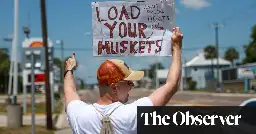
cross-posted from: https://lemmy.sdf.org/post/17713638
> ‘No way out without bloodshed’: the right believe the US is under threat and are mobilizing > > ““If we jail Trump, get rid of Maga, end the electoral college, ban voter ID, censor free speech, we’ll save democracy,” says one meme in a QAnon channel on Telegram that depicts Biden in a Nazi uniform with a Hitler mustache” > > Apparently they at least understand their opponent’s view .
Sony just doing Sony things in the Sony way, I guess.

cross-posted from: https://sh.itjust.works/post/20348652
> Sony's PSVR 2 virtual reality headset will get an adaptor for PCs this summer but its best features will remain exclusive to PlayStation
PSVR 2 will soon be compatible with SteamVR as a result
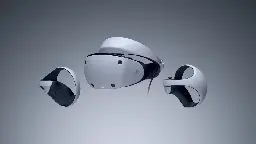
cross-posted from: https://feddit.nl/post/16154489
> Sony unveils the PSVR 2 PC adapter
The United States faces a shortage of energetics and propellants for munitions
cross-posted from: https://lemmit.online/post/3069765
> The United States faces a shortage of energetics and propellants for munitions > > ##### This is an automated archive made by the Lemmit Bot. > The original was posted on /r/ukrainianconflict by /u/Mil_in_ua on 2024-06-01 14:38:27+00:00. >
Alien Rogue Incursion - First Gameplay | PS VR2 Games
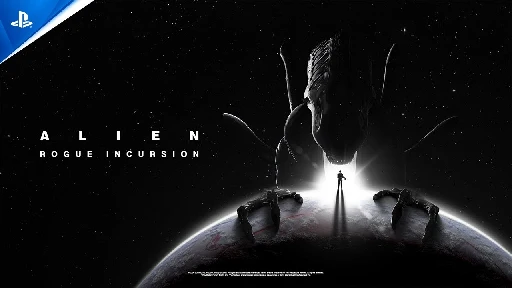
YouTube Video
Click to view this content.
cross-posted from: https://sh.itjust.works/post/20132517
> Alien Rogue Incursion - First Gameplay | PS VR2 Games
The war exposed serious flaws in some of the most sophisticated US weapons systems: Precision-guided weapons have been jammed by Russian electronic warfare units; ammunition unable to be produced ...
The US is studying the Ukraine war for clues on conflicts of the future.
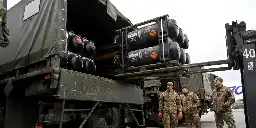
cross-posted from: https://lemmit.online/post/2950586
> ##### This is an automated archive made by the Lemmit Bot. > The original was posted on /r/ukrainianconflict by /u/Independent_Lie_9982 on 2024-05-19 06:41:34+00:00. >
For the first time since the launch of Russia's full-scale invasion, no Ukrainian brigades have reported a lack of artillery shells, President Zelensky told reporters yesterday
Over the winter months, Ukraine's armed forces suffered a "critical" shortage of artillery shells, in large part due to delays in U.S. military aid.
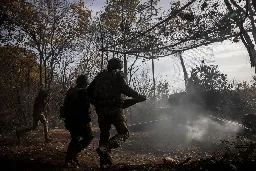
cross-posted from: https://lemmit.online/post/2934684
> ##### This is an automated archive made by the Lemmit Bot. > The original was posted on /r/ukrainianconflict by /u/Baysdarby on 2024-05-17 09:34:27+00:00. >
US Secretary of State Antony Blinken hinted on Wednesday that Ukrainian forces could bomb Russia with military materiel supplied by the US, something they had previously been forbidden from doing.
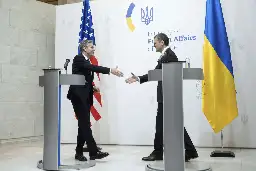
cross-posted from: https://lemmit.online/post/2928184
> ##### This is an automated archive made by the Lemmit Bot. > The original was posted on /r/ukrainianconflict by /u/Watcher_2023 on 2024-05-16 14:49:01+00:00. >
A spider used this hibernating frog to spin its web

cross-posted from: https://lemmit.online/post/2916847
> ##### This is an automated archive made by the Lemmit Bot. > The original was posted on /r/mildlyinteresting by /u/Rectile_Reptile on 2024-05-15 09:26:14+00:00. >
TIL that some people do not have an inner voice and think in different nonverbal ways.
The vast majority of people have an ongoing conversation with themselves, an inner voice, that plays an important role in their daily lives. But between 5-10 per cent of the population do not have the same experience of an inner voice, and they find it more difficult to perform certain verbal memory...

cross-posted from: https://lemmit.online/post/2916897
> ##### This is an automated archive made by the Lemmit Bot. > The original was posted on /r/science by /u/mvea on 2024-05-15 10:17:06+00:00.
This Photo on Amazon for Q-tips


cross-posted from: https://lemmit.online/post/2897862
> ##### This is an automated archive made by the Lemmit Bot. > The original was posted on /r/funny by /u/PillowPete on 2024-05-13 06:11:05+00:00. >
The USA will transfer modified JDAM bombs to Ukraine. They will be equipped with sensors to search for electronic warfare equipment and will have a longer range. Pentagon
cross-posted from: https://lemmit.online/post/2842281
> ##### This is an automated archive made by the Lemmit Bot. > The original was posted on /r/ukrainianconflict by /u/ua-stena on 2024-05-05 08:07:53. >
Colombian President Gustavo Petro, a staunch critic of Israel’s war in Gaza, says the Israeli government is ‘genocidal’.

cross-posted from: https://lemmy.ml/post/15135996
> Colombia to cut diplomatic ties with Israel over Gaza war, Petro says > > > Colombian President Gustavo Petro has announced plans to cut diplomatic ties with Israel over its war in the Gaza Strip, which human rights advocates and other experts have warned could amount to genocide. > > > > Speaking to a crowd marking International Workers’ Day in Bogota on Wednesday, Petro said countries cannot be passive in the face of the crisis unfolding in Gaza. > > > > “Here in front of you, the government of change, of the president of the republic, announces that tomorrow we will break diplomatic relations with the state of Israel … for having a government, for having a president who is genocidal,” Petro said. > > > >A left-wing leader who came to power in 2022, Petro is considered part of a progressive wave known as the “pink tide” in Latin America. He has been one of the region’s most vocal critics of Israel since the start of the Gaza war. > > > > In October, just days after the conflict began, Israel said it was “halting security exports” to Colombia after Petro accused Israeli Defence Minister Yoav Gallant of using language similar to what the “Nazis said of the Jews”. > > > And in February, Colombia suspended Israeli weapons purchases after Israeli forces opened fire on Palestinians scrambling for food aid in Gaza — an event Petro said “recalls the Holocaust”. > > > Meanwhile, in early April, the Colombian government requested to join a case at the International Court of Justice (ICJ) accusing Israel of genocide. > > > >“Colombia’s ultimate goal in this endeavour is to ensure the urgent and fullest possible protection for Palestinians in Gaza, in particular such vulnerable populations as women, children, persons with disabilities and the elderly,” the country said. > > Archive link
US preparing to announce $6B in weapons contracts for Ukraine. The package could be finalized and announced as soon as Friday, and will include Patriot systems.
cross-posted from: https://lemmit.online/post/2762418
> ##### This is an automated archive made by the Lemmit Bot. > The original was posted on /r/ukrainianconflict by /u/MaryADraper on 2024-04-26 01:07:28. >
The EU should stop ‘westsplaining’ and listen to its smaller eastern members – they saw the Ukraine war coming, researcher says
Lithuania doesn’t often set the agenda, yet it has been warning that Russia would invade Ukraine since 2008.
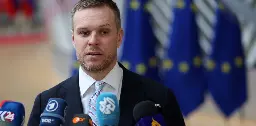
cross-posted from: https://feddit.de/post/11465777
> The EU should stop ‘westsplaining’ and listen to its smaller eastern members – they saw the Ukraine war coming, researcher says > > There is a "stark difference of opinion between countries like Lithuania, Latvia, Estonia, Poland and the Czech Republic as compared to western European countries such as France or Germany", writes Viktoriia Lapa from the Institute for European Policymaking at the Bocconi University in Italy, arguing that “westsplaining” still prevails in the European Union. > > "By 2022, Russia had launched a full-scale attack against Ukraine. Words of support came from every direction but concrete support was less forthcoming. During the first days of the war, Germany refused to send weapons to Ukraine and even prevented Estonia from sending its old howitzer artillery weapons by withholding approval," Lapa writes. > > "Lithuania, meanwhile, along with Latvia, Estonia and Poland, were sounding the alarm about the threat the situation posed to the rest of the region and called for Europe to support Ukraine “with every means available”. For many in the region, Europe should commit unambiguously to helping Ukraine win the war." > > "Until recently, even French president Emmanuel Macron was suggesting that Ukraine should compromise on some of its sovereignty to accommodate Putin’s demands. Such comments were coldly received in Baltic and eastern European states." > > "When Macron changed his strategy to say that he did not rule out sending troops to Ukraine, he faced backlash from several European capitals. However, he found an ally in Lithuania." > > "In a positive sign of recognition, EU Commission president Ursula Von der Leyen mentioned in her annual state of the union address in 2022: 'We should have listened to the voices inside our union – in Poland, in the Baltics, and all across central and eastern Europe.'"
Faced with global competition from countries with cheap renewable energy, the EU should embrace a partial deindustrialisation rather than subsidise uncompetitive industries, according to a new report from the Potsdam Institute for Climate Impact Research published on Wednesday (24 April).

cross-posted from: https://lemmy.ml/post/14895966
> Researchers urge Europe to 'embrace' deindustrialisation
Accused of spying for NATO. Drunken Russian soldiers kidnapped and killed an American blogger who fought on Russia's side against Ukraine
Accused of spying for NATO. Drunken Russian soldiers kidnapped and killed an American blogger who fought on Russia's side against Ukraine
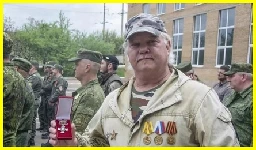
cross-posted from: https://lemmit.online/post/2712144
> ##### This is an automated archive made by the Lemmit Bot. > The original was posted on /r/ukrainianconflict by /u/ua-stena on 2024-04-20 10:42:47. >
Life expectancy vs healthcare spending of US compared to other developed countries
Americans have a lower life expectancy than people in other rich countries despite paying much more for healthcare. What factors may explain this?
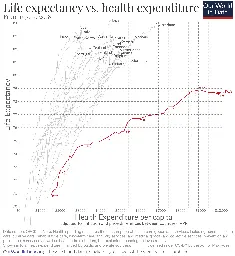
cross-posted from: https://lemmit.online/post/2699114
> Life expectancy vs healthcare spending of US compared to other developed countries > > ##### This is an automated archive made by the Lemmit Bot. > The original was posted on /r/dataisbeautiful by /u/dolekanteel on 2024-04-18 15:57:43. >
TIL that 'Rocky' (1976) was inspired by the true story of Chuck Wepner, a local boxer from New Jersey who was set up for a dream fight with Muhammad Ali. Wepner quit his job to train full time.
Wepner's 1975 fight with Muhammad Ali motivated Sylvester Stallone to write the movie about a fighting underdog.
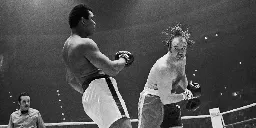
cross-posted from: https://lemmit.online/post/2699121
> ##### This is an automated archive made by the Lemmit Bot. > The original was posted on /r/todayilearned by /u/L8_2_PartE on 2024-04-18 22:22:46. > > Original Title: TIL that 'Rocky' (1976) was inspired by the true story of Chuck Wepner, a local boxer from New Jersey who was set up for a dream fight with Muhammad Ali. Wepner quit his job to train full time, and against all odds, lasted 15 rounds with the champ. Stallone was in the audience. >

